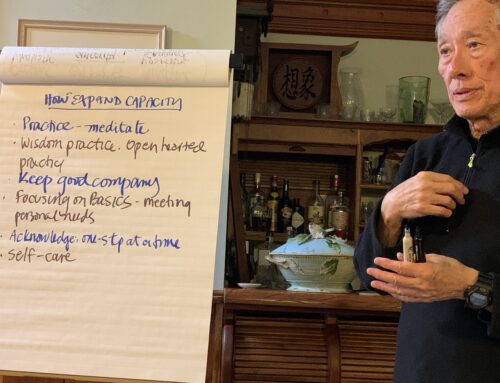forgive
verb for·give \fər-ˈgiv, fȯr-\
to stop feeling anger toward (someone who has done something wrong) : to stop blaming (someone)
—Merriam-Webster Dictionary
 Since the recent events in Paris and the world’s reaction to them, I have found myself contemplating forgiveness, and its relationship with mindfulness.
Since the recent events in Paris and the world’s reaction to them, I have found myself contemplating forgiveness, and its relationship with mindfulness.
Here’s what I notice: I cannot be mindful when I do not forgive. Notice it yourself; notice the steady stream of thoughts that come with an unforgiving mind; the dialogs, the finger-pointing, the justifications. Notice how they just don’t stop. Notice how, when you attempt to be mindful at a time like this, your inability to be mindful generates unforgiving thoughts towards yourself. Where is the peace?
No peace in Paris; no peace at home.
But what is forgiveness? For many of us, forgiveness is saying that we tolerate someone’s existence. We wouldn’t want to associate with them; we know what they did was wrong; there is probably no hope for them; and we are grateful we are better than that. But is that really forgiveness? Where is the forgiving taking place? They remain in the back of our mind as poor examples of human beings. They haunt our thoughts, they raise our blood pressure, and they keep returning in alternate forms that confront us again and again and again. Terrorists, politicians, talkback hosts, family, colleagues, tailgaters and serial killers. Over and over again we let our thoughts focus on the things that disturb our peace. Over and over again we let our stressful thoughts rule our emotions. Over and over and over again.
Mindfulness is simply being present. When I am not forgiving somebody, I enter their world. I am no longer here. The lights are on but nobody’s home, to coin a phrase. So, if forgiveness is related to mindfulness, it cannot simply be ‘letting them off.’
Forgiveness is seeing someone for who they truly are; it is going past who I see them as, beyond how they see themselves, and right to their very source. Forgiveness is understanding that given their perception of the situation and their set of beliefs about the world, they had absolutely no choice but to act in the way they did. Forgiveness is realizing that the only thing standing in the way of their perfection is my judgments.
Forgiveness comes from a deep, unwavering desire for peace above all else. If something is more important to you than peace, you’ll know, because peace will not be what you’re experiencing. And if peace is not what you’re experiencing then you’ll know, quite simply, that there is someone or something you’re not forgiving.
And that’s okay. Peace may not be your priority anyway, and even if it is, nobody ever found it by being upset with themselves for not being peaceful.



